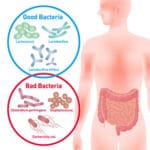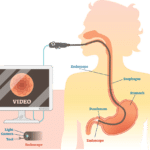Colon cancer testing is one of the best ways to help find cancer in its earliest stages when it is easiest to treat. If you are like many people, though, you may not be sure when you should get tested for this serious disease.
About Colon Cancer and the Importance of Screening
Cancer is a condition characterized by the rapid growth of abnormal cells. Colon cancer starts in the colon, also known as the large intestine. Cancer may also begin in the rectum, which is the last part of the colon. Doctors often describe colon and rectal cancer together, using the term colorectal cancer.
Colorectal cancer usually starts in a small group of cells that develop on the lining of the colon or rectum. Most of these clusters of cells, known as polyps, are harmless and never pose a problem. Some polyps can be precancerous, however, which means they have a chance of turning into cancer. Other polyps develop into early-stage cancer.
In its earliest stage, the abnormal cells of colon cancer remain localized to the colon or rectum and are therefore easier to treat. As the disease progresses, the abnormal colon cells spread to other parts of the body; the widespread presence of abnormal colon cells makes cancer more difficult to treat.
Colon cancer screenings are the best way to detect the presence of abnormal colon cells early before they have spread to the rest of your body.
When Should I Begin Colon Cancer Screening?
The American Cancer Society (ACS) issues recommendations for cancer screenings, such as the age and frequency at which you should undergo testing for certain types of cancer, such as breast, cervical, prostate, and colon cancer. The ACS recently changed their recommendations for colon cancer screening, recommending that people of average risk for colorectal cancer begin screenings at age 45. The organization lowered the age from 50 to 45 because cases of colorectal cancer are rising rapidly among younger adults, according to the National Institutes of Health (NIH).
It depends on your risk
Doctors describe the risk for colon cancer as either average or high. If you are generally healthy and do not have a family history of colon cancer, you are probably at average risk for colon cancer. Like others with an average risk, you should begin screening when you are 45 and continue to undergo screening until you are 75. You and your doctor can determine if you should continue screenings after the age of 75 – most doctors say you should if you can reasonably expect to live at least 10 more years. The ACS suggests colonoscopy every 10 years for people over the age of 45 at average risk for colon cancer.
You may have a high risk for colon cancer if you have a strong family history or a personal history of the disease. Having a personal history of inflammatory bowel disease, such as ulcerative colitis or Crohn’s disease, can put you at high risk for colon cancer. A family history of hereditary colorectal cancer syndrome can also increase your risk. The ACS does not provide guidelines for those at high risk for colon cancer.
To assess your risk for colon cancer and determine when you should get tested for colon cancer, consult with your doctor. The earlier you get tested, the better your chances for detecting and overcoming colon cancer.




